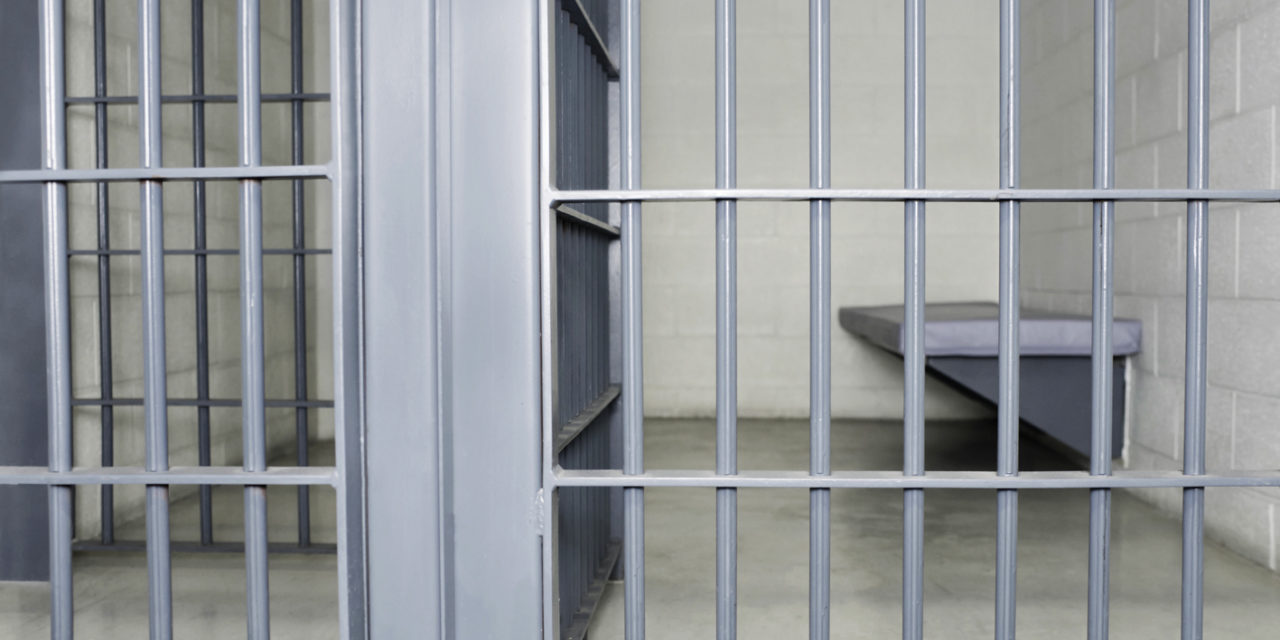In explaining the Gospel, a wise person once told me that God created justice so He could release mercy.
As Christ-followers, this is personal for each of us: We were once death-row prisoners who, by our very nature, didn’t deserve anything good. But God created justice by pouring our punishment out on His own Son at the cross, so He could release mercy to us. And that changed everything for us, forever! Not only were we released from our death sentences and the prisons that held us, but we were adopted into God’s family. We have been forgiven—and that means it’s as if we never sinned in the first place. The blood of Jesus completely expunged our records! And as it flowed down His face and body and onto the ground at Golgotha, He declared, “It is finished.”
As children of God, these facts are encoded in our new DNA. Since the Creation, we have been charged with taking dominion over the earth, and since the time of Jesus’ ministry, we have been not only taught, but empowered, to make things here as they are in Heaven. And part of that involves learning how to balance justice with mercy.
Nowhere in our society does this come into such stark relief as when dealing with people in our justice system—both literal prisoners and the formerly incarcerated.
Did you know that upon being released from prison, an individual faces 48,000 legal restrictions that make it more difficult to find housing, land a job or further his or her education? Forty-eight thousand. I don’t know about you, but that doesn’t sound like an awesome “second chance” to me—or like we’ve done a very good job yet of making things on earth as they are in Heaven. For these people, it isn’t “finished,” even though the state agrees that justice has been served; it just goes on and on and on. Faced with such obstacles, it’s little wonder so many people released from prison offend again within a matter of months.
But—much like spring itself—there are some signs that frozen ground is beginning to thaw.
“Politicians often speak to conservative voters as though they are only interested in locking people up and throwing away the key. That rhetoric is outdated,” Craig DeRoche, Prison Fellowship’s vice president of advocacy and public policy, wrote in guest column for the Richmond (Va.) Times-Dispatch ahead of last November’s gubernatorial election.
“The criminal justice policies of the past decades have resulted in outrageous expenditures with poor returns for society. As voters become more concerned about these failings, they have begun to question whether the corrections system is cost-effective and producing safer communities, and whether it’s in line with deeply held religious and cultural values like fairness, redemption and universal human dignity.”
A survey of 1,015 practicing and evangelical Christians conducted by the Barna Group last June on Prison Fellowship’s behalf shows some interesting trends:
89 percent of Christians agree either strongly or somewhat that it’s important for prison conditions to be safe and humane, compared to 81 percent of U.S. adults. This stems directly from their view that each individual has inherent value.
Interestingly, practicing Christians are more likely “to pass judgment on someone’s character” for drug usage than others, especially if the substances are illicit rather than prescription drugs. However, evangelicals are twice as likely as other Christians to avoid that distinction—saying the addiction, rather than the person’s character, is the issue.
Moreover, 89 percent of the respondents said they favor moving toward a “restorative justice” model—one that uses fair sentences, but seeks to bring restoration to everyone whose lives were harmed by the crime, from the victim and community to the offender.
According to an article published in The Washington Post on Jan. 26, more business owners nationwide are becoming willing to hire former offenders, particularly for jobs that used to go to undocumented immigrants before the Trump administration began cracking down on such hiring practices.
“It’s a large, mostly untapped pool of workers,” The Post points out. “Roughly 20 million Americans have been convicted of a felony. … Increasingly, business leaders see hiring people with criminal records as the right thing to do for America—and for their companies.”
The softening attitudes toward employing the formerly incarcerated cross all kinds of ideological lines—from the ACLU and NAACP on the left to business and faith leaders on the right. And that movement has been led largely by grassroots organizations.
“It’s common sense: We want former prisoners to be able to support themselves,” National Employment Law Project staff attorney Beth Avery told the Post. “That’s good for everyone in the long run. It reduces recidivism and public spending on incarceration.”
Moreover, the paper points out, “formerly incarcerated workers are often hard-working and loyal and not looking to jump to another employer.
“‘We’ve hired a lot of people with criminal records who have been good employees,’ said Mark Holden, general counsel at Koch Industries. ‘What someone did on their worst day doesn’t define them forever.’”
That sounds like a real second chance to me—and as if we’re starting to make things on earth look a little more like they do in Heaven.
Originally published in the March 2018 issue of Citizen magazine.






